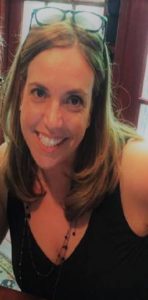 “‘Would you like to go to Cornell?’
“‘Would you like to go to Cornell?’
It is the question that helped shape my entire career. If you would have told me 16 years ago, when I was an undergraduate student with a 2.7 GPA, that someday I would have a Ph.D. and be a professor of sociology, I wouldn’t have believed you. No one would have. Yet, I have an incredibly fulfilling career largely because of the many formal and informal mentors who’ve helped me along the way.
This post is about one of my male mentors, a sociology professor named Dr. M. who was particularly influential early in my career, who asked the question I would never have asked myself.
My academic background as an undergraduate had been tenuous. I had majored in English Language and Literature, and my GPA made it difficult to land a job. I eventually got a job doing social work at a local domestic violence shelter; the position didn’t require a college degree, the hours were long, and the agency was underfunded. The work was exhausting and emotionally draining, and paid less than my waitressing job in college. It was a humbling and eye-opening experience.
It was a dear friend, Heather, who had suggested I go to grad school. Actually, she first suggested (with a perfectly straight face) I become a senator. I didn’t know anyone who had gotten a Ph.D. or run for public office. Yet, Heather encouraged me to think bigger. So, I took a graduate-level course in sociology at a nearby university. I loved it and it didn’t take long for me to know I wanted to become an academic sociologist. I applied to a Master of Science program in sociology and I worked hard to build my credentials and compensate for my undergraduate record. I took classes and worked on my thesis during the day and I continued doing social work full-time at night. I applied for scholarships and awards, attended conferences, and volunteered.
Everything I did during those two years was with one goal in mind. I wanted to have a competitive application when I applied to Ph.D. programs. I knew that the kind of academic job I wanted was increasingly difficult to secure and, consequently, it would be important for me to get into a top-ranked program. Dr. M. helped make that happen.
Dr. M. was influential in many ways, but two things in particular stand out. First, he agreed to chair my thesis committee, at a time when I was frustrated to find professors to take on the role. I had excelled in my graduate classes, yet I feared professors didn’t want to work with me because of my previous academic record. (I now know that faculty know little about their students’ beyond the work they do in class. Rather, the job is voluntary and time-consuming.) I had come into the program to demonstrate I could do graduate-level work and to build a network of sponsors who could write letters of recommendation for me. I needed someone to take a chance on me and Dr. M. did.
Second, when it was time to apply to Ph.D. programs, Dr. M. changed my life with a single question. I had narrowed my list down to 9 schools, all of which were reasonable places to pursue graduate work, but Cornell was not on the list. Truth be told, I thought such a place was beyond reach. Yet, Dr. M. suggested I apply to Cornell. I remember the moment clearly. He was sitting at his desk and nonchalantly asked, ‘Would you like to go to Cornell?’
I remember thinking the question was silly. Of course I’d like it, but it didn’t seem possible. Yet, he suggested that I apply in such an offhanded way, as if getting in was not the problem, but rather which school I preferred to attend.
This question set in motion a career trajectory beyond my wildest dreams. Had he not suggested Cornell, I wouldn’t have applied and I certainly wouldn’t have been accepted or graduated. I am keenly aware that academia is not a meritocratic system. Opportunities beget opportunities. Because of where I did my graduate work, I was able to learn from some of the most renowned sociologists in the world. I got to stay in graduate school—and was fully funded—for 8 years. I took on an ambitious dissertation project, which helped me land a prestigious postdoc at Stanford. The postdoc eventually led to my first academic appointment and now my current position which is, in every way, my dream job.
In retrospect, Heather and my male mentor, Dr. M., both did something similar. They were confident in my abilities and introduced me to possibilities I couldn’t imagine for myself.”
– Christin, Assistant Professor of Sociology, University of Connecticut
Storrs, CT